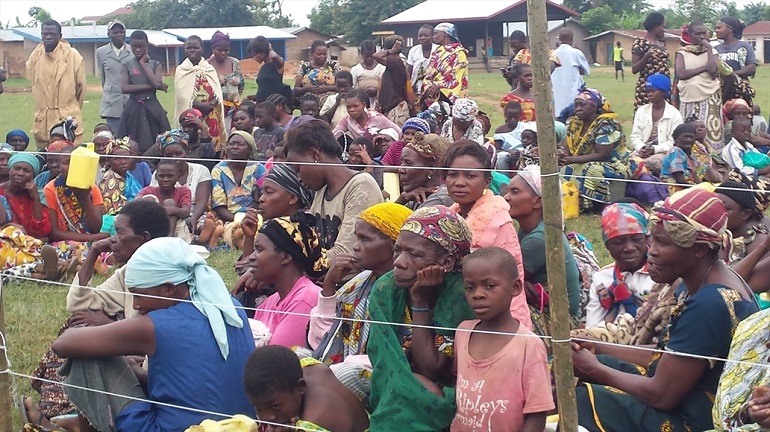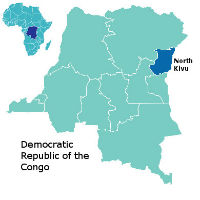
In the Democratic Republic of the Congo, dozens are feared killed as armed men believed to be Islamist militants from the ADF group stormed the eastern town of Beni, in the volatile province of North Kivu, on Saturday.
According to local sources, the assailants, in great number, attacked the city by surprise at around 5.30pm from the eastern suburb.
They fired light and heavy weapons, and targeted residential areas, causing panic among the inhabitants.
A military spokesman said the assault, which lasted until 10pm, claimed at least 18 lives – 14 civilians and four soldiers.
But other sources said as many as 40 people may have been killed. Eyewitnesses said some of the victims were killed with machetes, while an undetermined number of others were injured.
According to a local pastor, at least 27 victims have been identified as members of local churches.
“They included motorbike-taxi riders, their clients and a few farmers. They were all from different denominations,” the pastor said.

ADF, which originated in Uganda and has operated in the region since 1995, has been blamed for hundreds of civilian deaths over the past four years and of trying to uproot Christians from north-eastern DRC through attacks, rape, looting, kidnap and murder.
However, the scale of Saturday’s attack came as a surprise, as the militants managed to reach the centre of the city. Previously, ADF’s attacks in Beni had been limited to the suburbs. One survivor said the attackers were dressed up in military uniforms as they entered the Paida neighbourhood, creating confusion among locals who thought they were government forces coming to protect them.
“They then rounded up passers-by and told them to wait by the side of the road, before massacring them just before 8pm,” the survivor said. “They shot at everyone who tried to run away. From there the group also pursued and killed other civilians who were trying to flee the neighbourhood.”
A week ago, (18 September), another attack attributed to ADF claimed the life of a Christian woman in her forties, in Kokola village, 35km northeast of Beni.
Four of her grandchildren also sustained injuries, while four others remain missing, a local church leader said.
The woman had returned to the village only two months before the attack in the hope of restarting her farming, as the area had been relatively calm. She had joined others in lodging close to semi-permanent army barracks for protection. But the attackers descended first on the military camp, before taking on the civilians.
The woman, whose name has not yet been disclosed, was a member of the Communauté Evangélique au Centre de l’Afrique (CECA20) church.
An aid worker who runs a care centre for orphaned pygmies described the situation as “traumatic” in a statement on Sunday (23 September), a day after the massacre.
“These rebels who call themselves the Muslim Defense International [ADF’s other name] also hit near our base in Ngadi three times in two weeks [two weeks ago].
“There was bombing and seemingly endless automatic weapon fire. Two of the three times we evacuated. It was very traumatic but not as bad as it would have been if we did not have a second house to run to. All the children and workers spent the night and returned the next day. Right or wrong, that’s how we do it.”
Beni is a predominantly Christian area, as is most of the DRC, but Independent Catholic News quoted reports stating that, within a few years, the number of Muslims in eastern DRC has risen from 1% to 10%.
Local bishops and civil society have repeatedly denounced the violence carried out in the name of ADF, but which has now taken the form of a jihadist organisation.
In reaction to the Saturday attack, a general strike was observed on Monday, with shops and schools closed and no cars on the roads.
The same day, dozens of people, mostly students, demonstrated in the streets of Beni to protest the killing of civilians and demand more protection from the government.
The demonstrators also denounced the inability of UN troops in the region to prevent attacks which have claimed more than 2,500 lives in three years according to civil society groups.